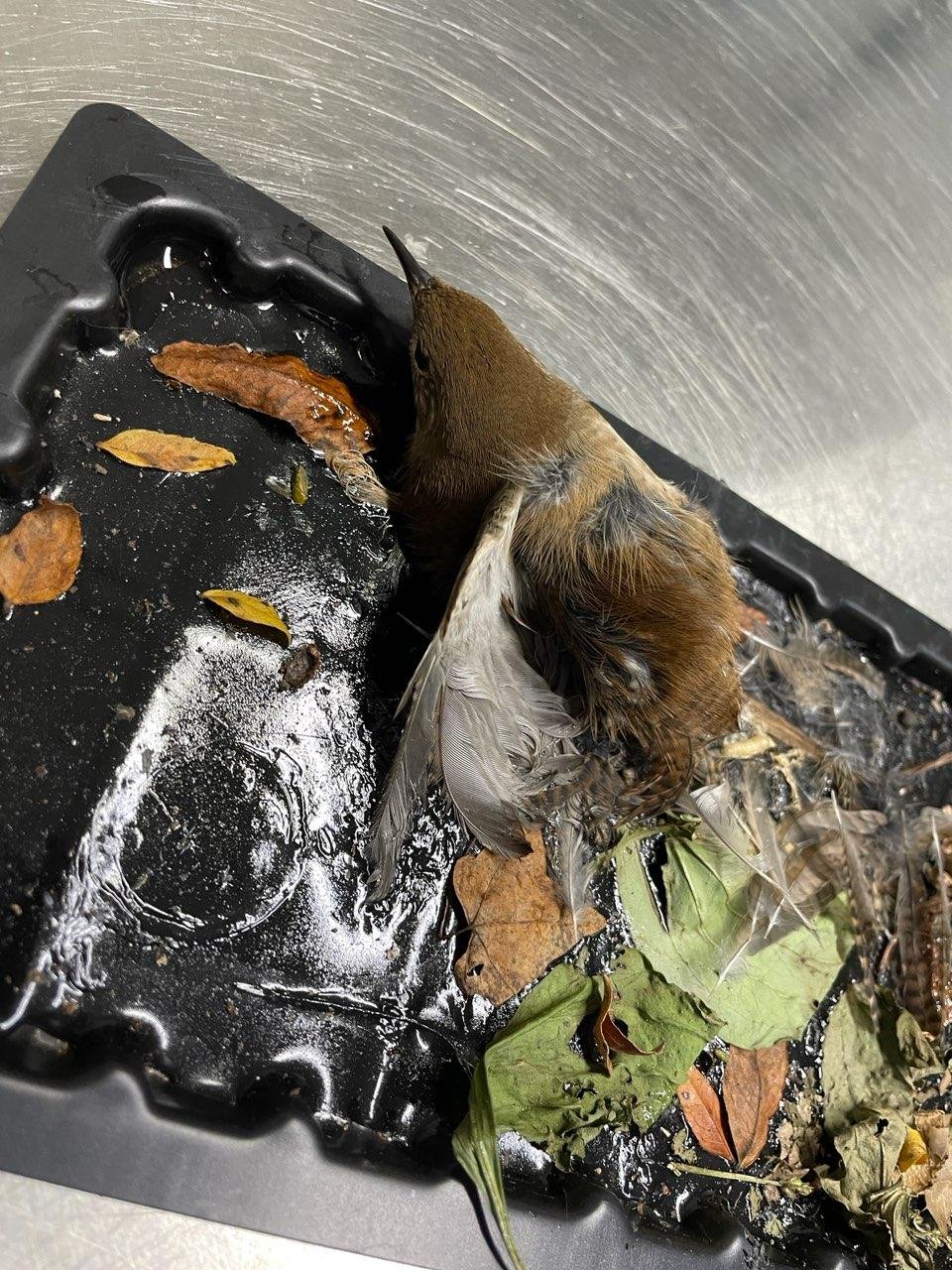Preventing Bird Injuries: Home & Pets
Many wild bird injuries are caused by, or related to, human activities. The vast majority of the injuries are accidental and often difficult, if not impossible, to prevent. But there are precautions you can take to minimize the chance of a wild bird becoming injured because of your activities. We believe the following suggestions will be helpful to you, and the birds.
We hope the ideas and suggestions presented here will help you in preventing avoidable home injuries to our wild birds.
Disarm Windows and Glass Doors
Glass collisions pose a serious threat to wild birds. The American Bird Conservancy estimates that as many as ONE BILLION birds die from glass strikes every year in the United States alone. We treat many birds that have suffered impact injuries from flying into windows or glass doors. Birds often fly into glass because they don’t perceive the glass as a solid object. The problem is more common with large windows and sliding glass doors. If a bird flying into a window or door of your home is a recurring incident, disarm the glass by disrupting its see-through properties. Closing your blinds or drapes may work, but from our experience most times the problem must be solved from the outside.
You can place streamers or a decorative wind sock in front of the problem window. The movement will help ward off birds.
A few lines of light-colored string hung loosely across the window can also be effective.
UV reflective “bird safe” decals can be attached to windows – almost invisible to humans, but a bright signal to a bird’s superior eye.
Stained-glass ornaments attached by suction cups on the outside surface can be used to break up the reflective and transparent properties of the glass.
During nesting season some birds, robins and cardinals particularly will repeatedly attack their own reflected image, thinking it a rival in their territory. This problem will resolve itself with time. As the nesting season progresses the birds will stop this behavior, but you can try any of the above suggestions to keep the bird away from the windows.
If you feed birds, place the feeder away from windows; there will be less opportunity for an accident to occur.
These links to the US Fish and Wildlife Service and the American Bird Conservancy provide further info about glass collisions and what YOU can do to help keep birds safe.
Screen the Top of Your Chimney
Cavity nesting birds sometimes mistake chimneys as suitable nest or roost sites and can accidentally find their way into your home. To avoid unwanted visitors and prevent their injury, have a chimney screen installed. If you’re a “do-it-yourselfer,” commercial chimney screens are available at most hardware stores or can be made from 1/2″ X 1/2″ galvanized welded wire. The wire, securely fastened to the top of the chimney, will not interfere with its function and will keep birds, as well as small mammals, from entering. Attic ventilation openings, vent pipes and window fans can also be screened to prevent birds from entering.
Birds do not make good party favors and class projects
Various stores sell ducklings at Easter time; some schools have “raised” young chicks, quail, and other species from eggs for science projects; and domestic white doves are sometimes released at celebrations such as weddings and graduations. None of these species is able to survive in the wild and they become problems when released.
Unless you have a farm or other place where these birds can live when they are fully grown, these activities should be discouraged.
Mourning Dove caught by cat
Keep Cats Indoors
Domestic cats make wonderful indoor pets, but when allowed to roam outdoors, the consequences are disastrous. The American Bird Conservancy estimates that 2.4 billion birds are killed by domestic cats in the United States alone. Domestic cats are the single largest human-caused mortality factor for wild birds.
Wildlife rehabilitators are overwhelmed each year with birds that have been caught by domestic cats. Further, these birds rarely survive the injuries they sustain as a result of being caught by cats. For more info about domestic cats and the threat they pose to wildlife, visit The American Bird Conservancy at www.ABCBirds.org.






